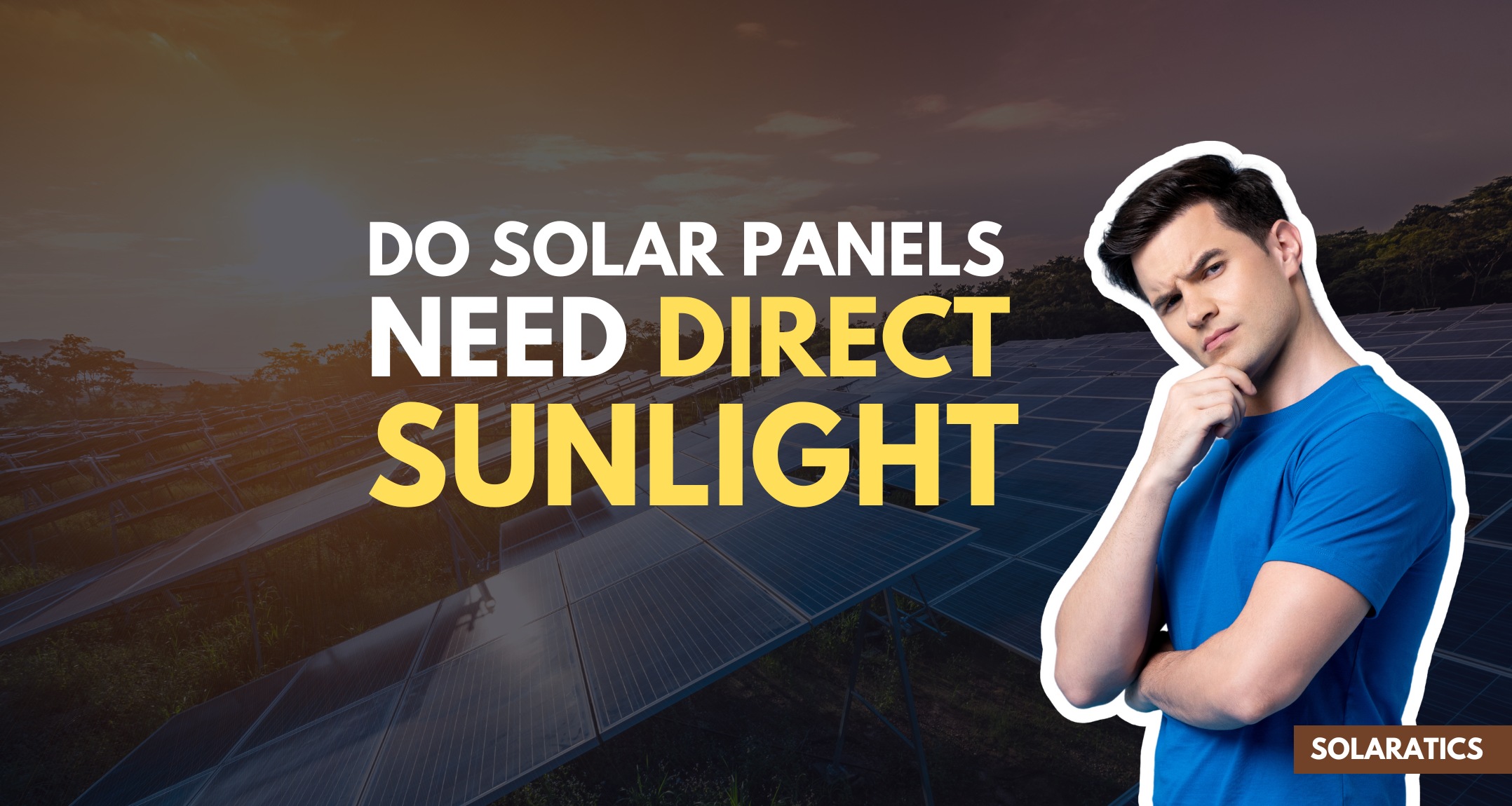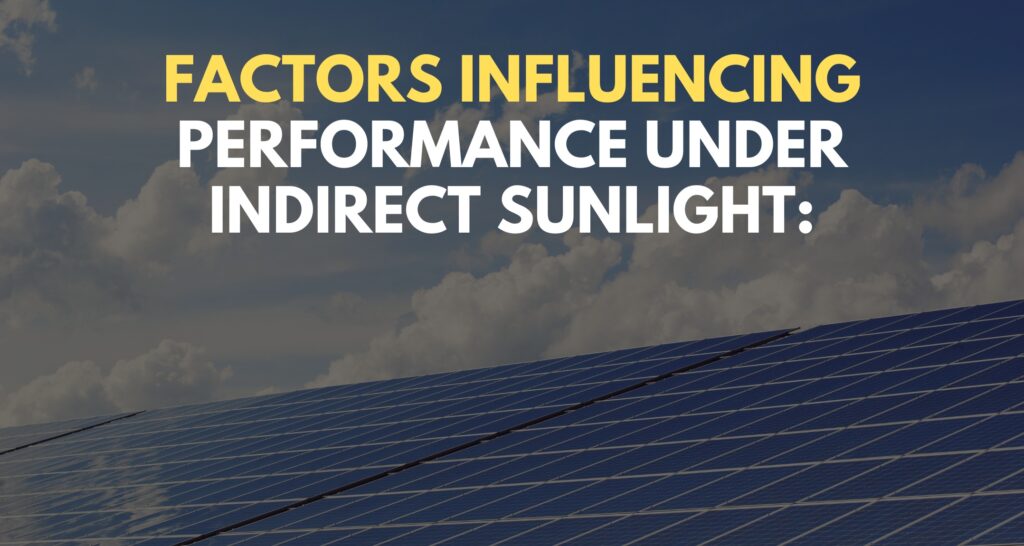Do Solar Panels Need Direct Sunlight To Function Effectively?

A lot of Confusion about Do Solar Panels Need Direct Sunlight to work properly and It is very Important to Know the effect of sunlight if You are going to invest on solar you should must read this post to clear basic concept.
As we strive towards a more sustainable future, solar energy emerges as a beacon of hope, harnessing the sun’s power to generate clean electricity. However, a common question arises: Do solar panels need direct sunlight to function effectively?
While direct sunlight maximizes their efficiency, the answer is not as simple as a yes or no. Let’s delve into the intricacies of solar panel functionality and explore the impact of indirect light on their performance.
Understanding the Science Behind Solar Power Generation:
Solar panels are composed of photovoltaic cells, which convert sunlight into electricity through the photoelectric effect. When light strikes these cells, the energy knocks electrons loose, creating an electrical current. The more sunlight the cells receive, the more electrons are energized, leading to a higher electricity generation.
Direct Sunlight: The Ideal Scenario for Maximum Efficiency
Direct sunlight offers the ideal conditions for optimal solar panel performance. The unfiltered light striking the cells directly maximizes the energy absorbed and, consequently, the amount of electricity generated. This is why solar panels are typically installed facing south in the northern hemisphere and north in the southern hemisphere, maximizing their exposure to direct sunlight throughout the day.
Indirect Sunlight: Still Capable of Generating Power
While direct sunlight is the ideal scenario, solar panels can still generate electricity under indirect sunlight. This is because light scattered by clouds, reflected by surfaces, or diffused by atmospheric conditions can still reach the photovoltaic cells and contribute to electricity generation. However, the efficiency of the panels decreases as the light becomes less direct.
Factors Influencing Performance under Indirect Sunlight:
Several factors influence the performance of solar panels under indirect sunlight:
- Cloud Cover: The thickness and type of clouds significantly affect how much sunlight reaches the panels. Light clouds may only slightly reduce efficiency, while thick, dense clouds can significantly impact power generation.
- Reflective Surfaces: Nearby reflective surfaces, like snow or white buildings, can redirect sunlight onto the panels, boosting their performance.
- Angle of Incidence: The angle at which the sunlight hits the panels impacts the amount of light absorbed. Angling the panels towards the sun can maximize performance under indirect sunlight.
- Panel Efficiency: Different solar panels boast varying degrees of efficiency. High-efficiency panels tend to perform better under indirect sunlight compared to less efficient ones.
Quantifying the Impact of Indirect Sunlight:
On average, solar panels generate approximately 20-25% less electricity under indirect sunlight compared to direct sunlight. However, this can vary depending on the factors mentioned above. In some cases, the reduction may be minimal, while in others, it could be significantly higher.
Optimizing Performance under Indirect Sunlight:

While direct sunlight is ideal, several strategies like angle exact places and solar batteries etc. can be implemented to optimize solar panel performance under indirect sunlight:
- Maintaining Clean Panels: Dirt and grime on the panels can significantly reduce their efficiency. Regularly cleaning the panels ensures optimal light absorption.
- Proper Panel Placement: Installing the panels in a location with minimal shading and ample exposure to indirect sunlight is crucial.
- Utilizing High-Efficiency Panels: Investing in high-efficiency panels can significantly enhance power generation even under indirect light.
- Monitoring Performance: Regularly monitoring the performance of the panels can identify any potential issues and help optimize their efficiency.
Conclusion:
While direct sunlight maximizes solar panel efficiency, indirect sunlight can still contribute significantly to generating clean electricity. By understanding the factors influencing performance, implementing optimization strategies, and investing in high-quality panels, you can harness the sun’s power effectively even when direct sunlight is limited. As we embrace a more sustainable future, solar energy offers a promising solution, and understanding the nuances of its operation is key to maximizing its potential.
